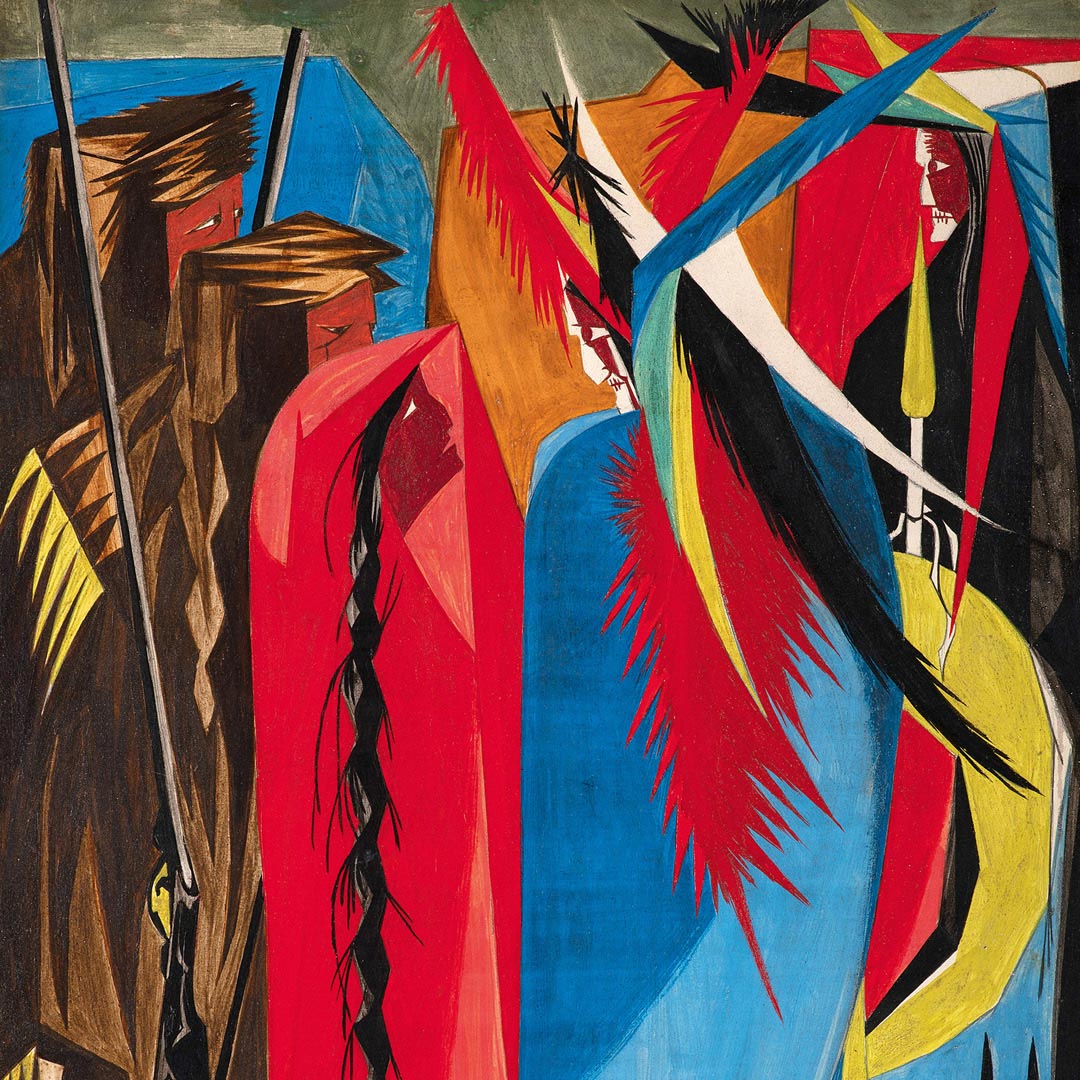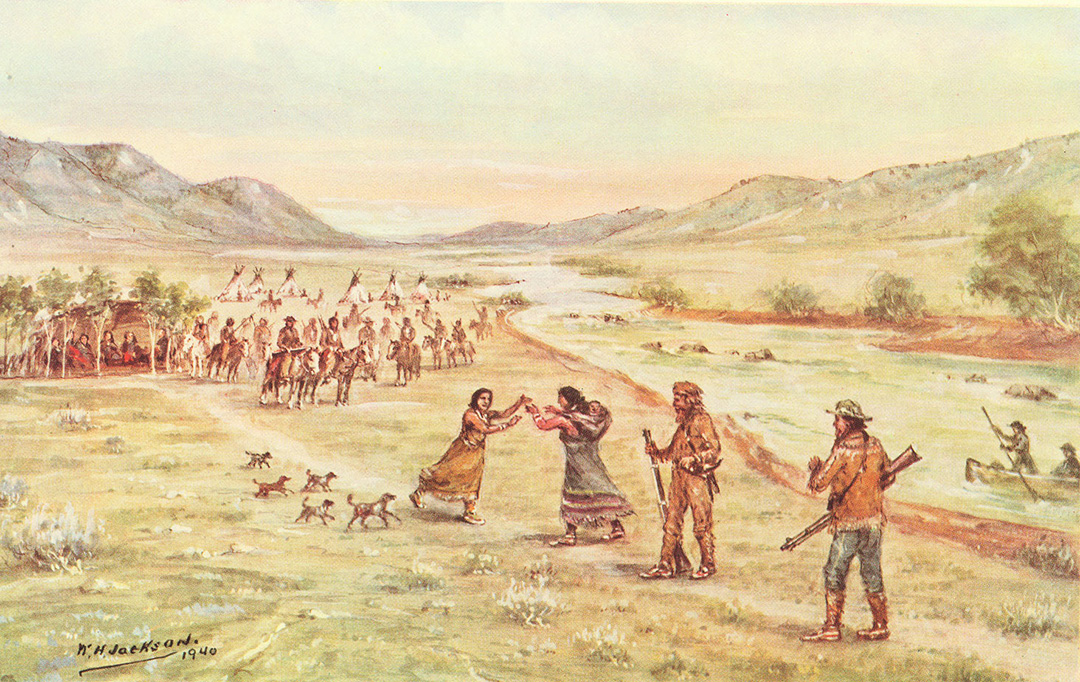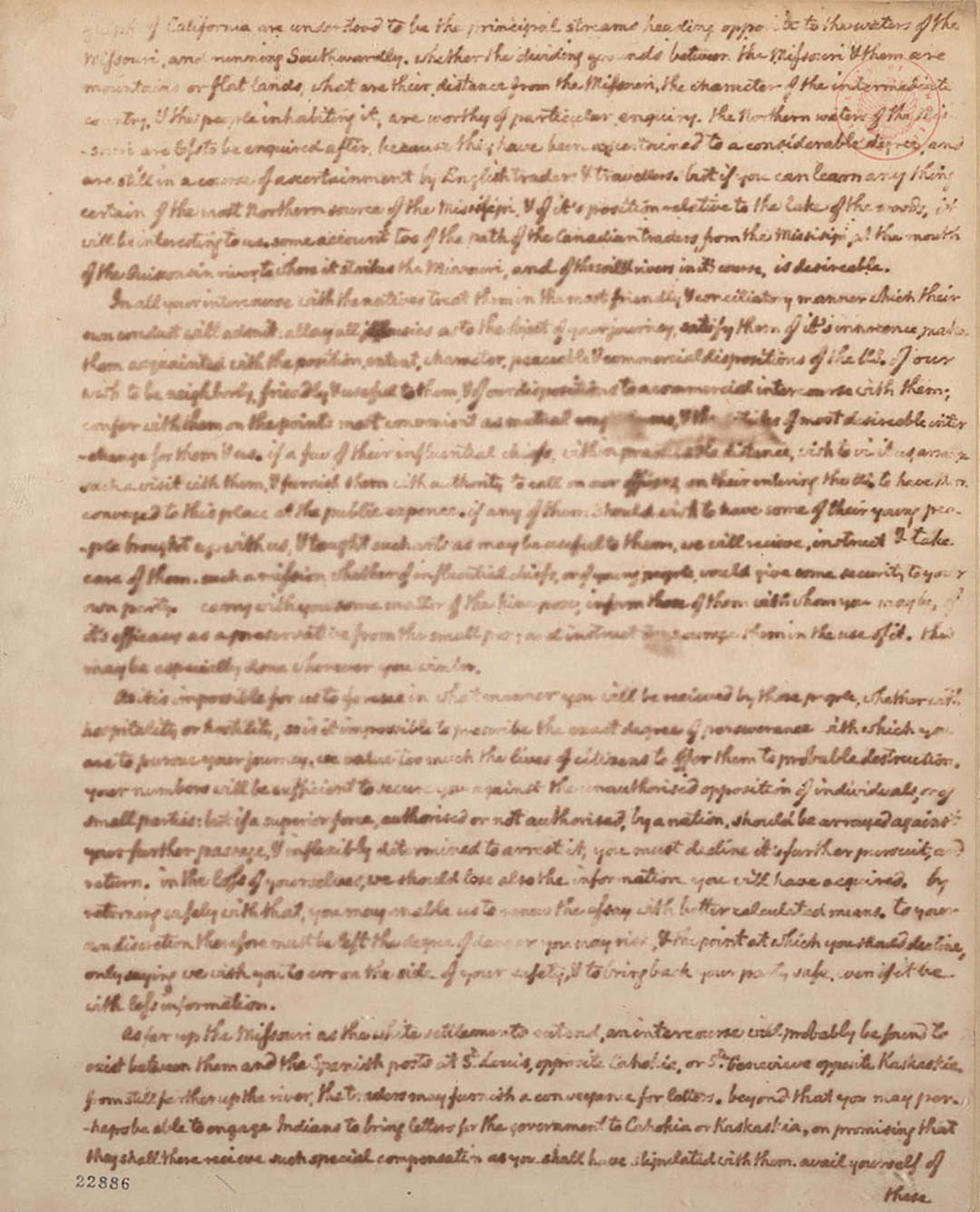
Panel 18
In all your intercourse with the natives, treat them in the most friendly and conciliatory manner which their own conduct will admit . . . —Jefferson to Lewis & Clark, 1803, Panel 18, 1956, Inscription: [EXPLORATION?] WEST [LEWIS+?] CLARK — 1803–1806, Jacob Lawrence, from Struggle: From the History of the American People, 1954–56, Collection of Harvey and Harvey-Ann Ross, © 2019 The Jacob and Gwendolyn Knight Lawrence Foundation, Seattle / Artists Rights Society (ARS), New York.

